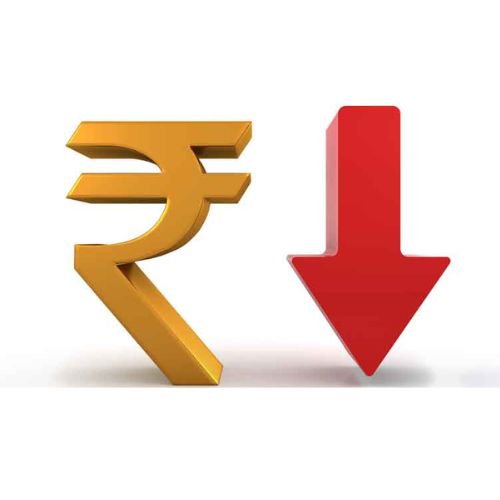The RBI mechanism is expected to facilitate importers and exporters to avoid rules that prevent the use of a global currency such as the US dollar for trade with certain countries. After Russia attacked Ukraine, several countries had imposed sanctions on Russia. Indian companies which were looking for alternative modes of payment for imports can make use of the new mechanism.
The Reserve Bank of India (RBI) has put in place a mechanism to settle international trade in rupees “in order to promote the growth of global trade with emphasis on exports from India and to support the increasing interest of the global trading community in the rupee”. The central bank’s move has come in the wake of increasing pressure on the Indian currency in the wake of Russia’s invasion of Ukraine and sanctions by the US and the EU.
The RBI mechanism is expected to facilitate importers and exporters to avoid rules that prevent the use of a global currency such as the US dollar for trade with certain countries. After Russia attacked Ukraine, several countries had imposed sanctions on Russia. Indian companies which were looking for alternative modes of payment for imports can make use of the new mechanism.
In a circular issued to commercial banks on Monday, the RBI said all exports and imports under this arrangement may be denominated and invoiced in rupee (INR). “Exchange rate between the currencies of the two trading partner countries may be market determined,” the RBI said, without mentioning the name of any country.
According to the central bank, AD (authorised dealer) banks in India have been permitted to open rupee Vostro accounts. Accordingly, for settlement of trade transactions with any country, AD bank in India may open special rupee Vostro accounts of correspondent banks of the partner trading country. A Vostro account is an account a correspondent bank holds on behalf of another bank.
“Indian importers undertaking imports through this mechanism shall make payment in INR which should be credited into the special vostro account of the correspondent bank of the partner country, against the invoices for the supply of goods or services from the overseas seller /supplier,” it said.
“Indian exporters, undertaking exports of goods and services through this mechanism, should be paid the export proceeds in INR from the balances in the designated special vostro account of the correspondent bank of the partner country,” the RBI said.
On the permission required, the RBI said the bank of a partner country may approach an AD bank in India for opening of special INR Vostro account. “The AD bank will seek approval from the Reserve Bank with details of the arrangement. AD bank maintaining the special Vostro Account will ensure that the correspondent bank is not from a country or jurisdiction in the updated FATF public statement on high risk and non co-operative jurisdictions on which FATF has called for counter measures,” the RBI said.
As per RBI, exporters may receive advance payment against exports from overseas importers in Indian rupees through the rupee payment mechanism. Before allowing any such receipt of advance payment against exports, Indian banks should ensure that available funds in these accounts are first used towards payment obligations arising out of already executed export orders and payments in the pipeline,” it said.
To ensure the advance is released only as per the instructions of the overseas importer, the Indian bank maintaining the special vostro account of its correspondent bank should, apart from usual due diligence measures, verify the claim of the exporter with the advice received from the correspondent bank before releasing the advance, it said. The RBI said the issue of bank guarantee for trade transactions, undertaken through this arrangement, is permitted subject to adherence to provisions of FEMA notification. The rupee surplus balance held may be used for permissible capital and current account transactions in accordance with mutual agreement, it said.















